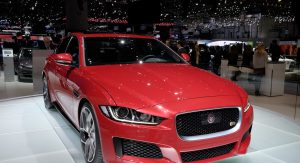British car manufacturers could be on the verge of receiving post-Brexit tariffs because not enough of their components are sourced from local suppliers.
Generally, UK firms must prove that 50 to 60 per cent of a product’s components come from within the UK to escape tariffs. However, the Automotive Council states that on average, UK cars are only 44 per cent British-made, Bloomberg reports.
Carmakers are currently permitted to classify parts sourced from Europe as British-made, allowing them to escape tariffs. However, when the country leaves the European Union, all of that will change as rules of origin policies are enforced, forcing brands to research using local suppliers at potentially higher prices.
A spokesman from Honda has already said that the company is already investigating new suppliers for the Civic, currently manufactured in the town of Swindon.
“If we have a free-trade agreement with the EU after Brexit, then we’ll have to have rules for determining whether the cars coming out of the U.K. really are considered British cars,” said Peter Holmes, an economist at the U.K. Trade Policy Observatory.
Secretary general of European auto supplier association CLEPA, Sigrid de Vries, says that a number of car companies are “considering various options.”
“Changes will be complex and painful. The automotive industry is a prime example of how the EU internal market has helped underpin competitiveness in the face of global competition: The sector operates on the global market place,” she confirmed.









